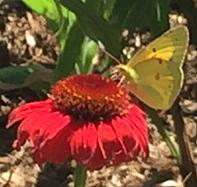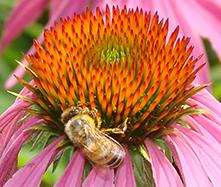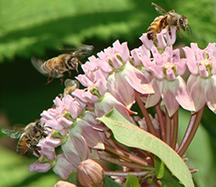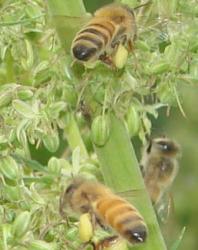Pollinator Protection
There are hundreds of species of native bees in Colorado as well as several thousand hives of the honey bee (Apis mellifera) managed commercially and by hobby beekeepers across the state. All of these species, as well as butterflies, moths, flies, hummingbirds and others, are very important pollinators of native and non-native crop and landscape plants.
All pollinators are facing threats from complex interacting factors. Managed honey bees (Apis mellifera) are facing threats from increased disease and mite parasites, lack of genetic diversity, habitat loss due to the expansion of urban landscapes and crop monoculture, stress due to the transport of commercial hives to California to pollinate almonds and environmental toxins including pesticides.
The Colorado Departmentof Agriculture supports the use of integrated hive management to promote proper hive hygiene, mite and disease management, regulates the proper use of pesticides and promotes improved habitat for all pollinators.



Colorado Department of Agriculture's DRAFT Managed Pollinator Protection Plan Guidelines
These guidelines have been reviewed through the Colorado Department of Agriculture's Pesticide Advisory Committee which has representatives from the commercial pesticide applicator industry, Colorado Department of Public Health and Environment, Colorado State University, pesticide formulators, organic growers, agricultural workers, the general public and beekeepers. This document remains in a draft form currently for future considerations. This document is a guideline of best practices to avoid and prevent impacts to pollinators. The guidelines are not set in law and are not enforceable.
Other CDA Pollinator Information
- CDA Pollinator Protection and Apiary Program Summary of Accomplishments
- What crops rely on pollinators in Colorado?
- Gardening for insects, Colorado State University Extension
- Biology of Bees and Wasps, CSU Extension
- Gardening for beneficial insects
